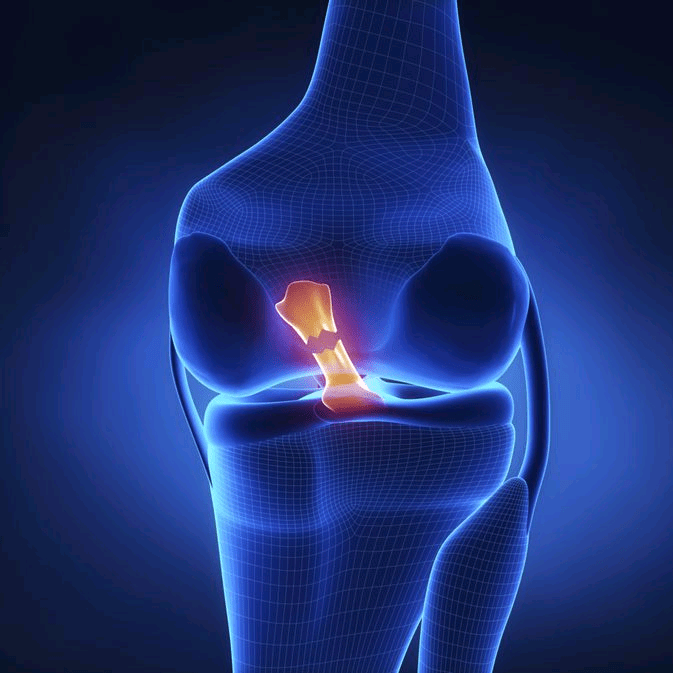
There was an interesting article in the Sydney Morning Herald in the past week that prompted a few questions from some of our clients, and certainly provoked some robust discussion in social media circles. It was based around ACL (Anterior Cruciate Ligament of the knee) ruptures and the resultant reconstructive surgery that is often recommended and performed. As always, media statements and releases often need to be scrutinised carefully, and the content read with a clear and unbiased mind, and questions asked to the appropriate people to clarify what you are reading. Bold large controversial headlines are attention seeking – an attempt to get our scanning eyes to stop and read the full article (a bit like my “Read About The Biggest Fool To Walk Into Our Clinic” headline from last month). But let’s look at the headline of the article in the SMH:
“For decades, an ACL tear meant surgery. New evidence suggests that may be the wrong move”.
Now there are a few assumptions that you immediately draw from this headline: firstly that having an ACL rupture has always resulted in reconstructive surgery; and secondly that new evidence is now showing that all these reconstructions that have been performed (and will be performed in the future) may have been wrong! The first statement has some element of truth to it – certainly until recent years, rupturing an ACL has resulted in a majority of people proceeding to Anterior Cruciate Ligament Reconstruction (ACLR) surgery. But this has not been absolute – physio’s and surgeons have always taken into account age, type of sport, level of sport, and associated damage to other structures (amongst other factors) when making this decision. In contrast the second statement in the headline is nothing but inaccurate and misleading.

There are a few points in this article that the author uses to back up the “wrong move” theory that require detailed thought and further explanation:
• “there are no long-term differences between surgically repairing a torn ACL and doing rehabilitation exercises”.
What a gross generalisation and misleading statement is. If I have two 50 year old clients present to me today, both whom tore their ACL at 18yo but only one having an ACLR, what would I expect? I would expect their knees to present very similar to each other: full range of movement, no swelling, good muscle tone and strength, stable, able to play golf and tennis and run around with their kids: not a lot of long term difference! But what about the short and medium term? Whilst I accept this is a generalisation as well, I believe there is truth in my thoughts that the 18yo that had the ACLR would have been more likely to return to their previous sport, and more likely to return to a higher level of that sport, than the person who didn’t have the ACLR. So whilst there might not be much of a long term difference 30 years later between the two, there may well have been enormous differences DURING those 30 years, particularly the first decade of that period!
• “Evidence suggests the cure does not always work: about a third of people who have surgery won’t return to their previous level of sports. A quarter of those who return to high-risk sports will re-tear their ACL. These risks are seldom mentioned on websites run by knee surgeons, and they rarely mention the benefits of non-surgical management”.
The fact is we have known these risks for years, and the surgeons we work closely with at SSPC are extremely conservative in nature, always exploring non operative options whenever possible. Whilst risks may not be openly listed on websites, they are always explained by the leading surgeons. In fact, the most common feedback I get following a referral of a client of mine to an orthopaedic surgeon is “the surgeon didn’t make a decision – they just went through the pros and cons of operating and not operating and left the decision to me”! Unless your condition is absolutely essential or life threatening, you will find most surgeons will outline non operative options if there are any. And keep in mind, no surgery has a 100% success rate.
• The researchers found non-surgical management – typically an exercise program to strengthen other muscles in the knee – probably works just as well as surgery.
“Works just as well” for what – Pain? Function? Return to sport? Employment? Life satisfaction? Short and long term outcomes? A statement as simple as the one above would have people believe that you might as well just not have the surgery because you’ll end up with same result anyway. Let me tell you it just ain’t as simple as that!
• The review also suggests the claim that ACL surgery prevents long-term arthritis in the joint does not stack up. Patients who had rehab were no more likely to develop arthritis, it found.
Again, we have known this for a long time! Yes, many years ago we used to think that an ACLR would help reduce the risk of medium to long term arthritis, but this has not (or should not) have been used as reasoning for a very long time!
Deciding on the need to have a knee reconstruction certainly isn’t the simplistic decision it once was – back years ago, the surgeon made the decision. Now, the decision to operate or not operate should be a shared decision, once all the facts are explained, between yourself, your surgeon, your sports physio, and those closest to you. It is not a simple decision, many factors must be taken into account, and what we do know is that delaying the surgery in many cases (it used to be done pretty much the week after you tore the ligament) can really help your post operative outcomes, and sometimes helps make the decision on whether you do need to proceed to surgery a lot easier.
And one final exciting point re ACL’s – we are seeing more and more evidence of the potential for some ACL’s to spontaneously heal following a rupture, a process we once thought impossible. It’s way too early to make definitive statements regarding surgical (or non surgical) choice just based on this healing possibility, but it’s an exciting prospect none the less.
Anthony Lance
SSPC Physiotherapist
Based on an article in the Sydney Morning Herald, September 6th 2022, “For decades, an ACL tear meant surgery. New evidence suggests that may be the wrong move”.
You might like these other resources
Why Do My Joints Ache In Cold Weather?
11 June 2025
The Role of Ice in Managing Acute Sporting Injuries
17 September 2024
Are Your Bones Strong Enough?
28 May 2024





